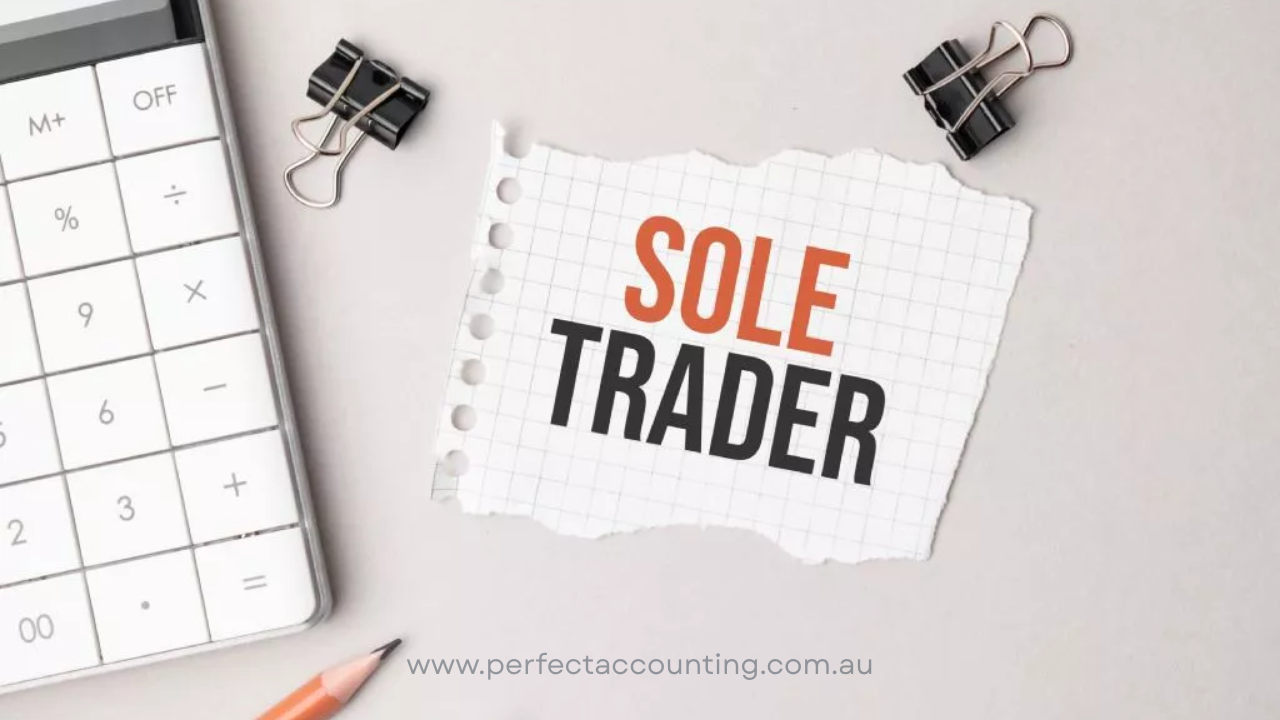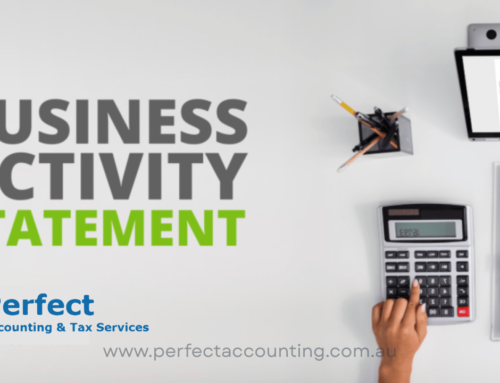Starting your own business can be exciting, overwhelming, and life-changing all at once. If you’re thinking about setting up as a sole trader, you’re not alone — it’s one of the most popular ways people start their entrepreneurial journey in Australia and beyond.
In this guide, we’ll walk you through everything you need to know about becoming a sole trader. Plus, we’ll show you how Perfect Accounting can help you set up, manage your accounts, and grow with confidence!
What is a Sole Trader?
A sole trader is a person who runs their business as an individual. You are legally responsible for every part of the business, from debts and profits to managing customers and taxes. It’s simple, flexible, and gives you full control over your business.
➡️ Learn more about sole traders
Quick Example:
Emma, a freelance graphic designer, decided to start her business as a sole trader. She loved the freedom of working for herself and setting her own rates. Although it came with responsibilities like tax obligations and insurance, she found the simplicity of the structure perfect for her needs.
Why Choose to Become a Sole Trader?
Choosing to become a sole trader has many advantages, such as:
-
Low startup costs
-
Simple tax returns (compared to companies)
-
Full control over decisions
-
Easy to change your business structure later if you grow
Still unsure? Imagine this:
You launch your online bakery from home. You get to create your own brand, interact directly with customers, and expand at your pace without needing board approvals. Sounds good, right?
Step-by-Step Guide to Becoming a Sole Trader
Here’s a simple step-by-step plan to help you start your sole trader journey:
1. Decide on Your Business Name
First, choose a catchy and meaningful name. If you want something other than your personal name, you’ll need to register your business name.
2. Get an Australian Business Number (ABN)
An ABN is crucial — it’s how the government identifies your business for tax purposes. It’s free to apply online.
3. Register for Taxes
Depending on your expected income, you may need to register for GST (Goods and Services Tax). This usually applies if you expect to earn $75,000 or more per year.
4. Set Up Business Banking
It’s smart to keep your personal and business finances separate. Open a business bank account to track your earnings and expenses easily.
5. Get the Right Insurance
Consider public liability insurance or professional indemnity insurance depending on your field. Insurance protects you if something goes wrong.
6. Keep Accurate Records
Good record-keeping isn’t just helpful — it’s a legal requirement! This is where many sole traders get stressed, but with Perfect Accounting, you’ll never have to worry. Our expert accountants ensure your books are accurate and up to date.
Talk to Perfect Accounting now for a free consultation!
Common Mistakes New Sole Traders Make (And How to Avoid Them)
Even with the best intentions, mistakes can happen. Here are some to watch out for:
-
Mixing business and personal finances
-
Ignoring tax obligations
-
Not planning for superannuation
-
Underpricing your services
For example, Jack started a home carpentry business. He forgot to set aside money for taxes and was hit with a huge bill at the end of the year. Don’t be like Jack! Stay organized and work with pros like Perfect Accounting to manage your obligations smoothly.
Benefits of Working with Perfect Accounting
When you partner with Perfect Accounting, you gain:
-
Personalized tax advice
-
Business setup guidance
-
Ongoing bookkeeping services
-
Growth strategies and financial planning
Our team has years of experience helping sole traders like you succeed. Whether you’re just starting out or looking to grow, we tailor our services to your needs.
Book a FREE consultation today!
Frequently Asked Questions
Do I need to register for GST immediately?
Only if your turnover is expected to exceed $75,000 annually. Otherwise, you can choose to register voluntarily.
Can I hire employees as a sole trader?
Yes, you can! You’ll need to meet employer obligations like paying superannuation and workers’ compensation insurance.
How much does it cost to set up as a sole trader?
Starting as a sole trader is generally low-cost. Registering for an ABN is free, but registering a business name costs around $39/year.
Final Thoughts
Starting as a sole trader is one of the easiest and most rewarding ways to build your dream business. Sure, it comes with responsibilities, but the freedom, flexibility, and low-cost setup make it perfect for many entrepreneurs.
The key to success? Don’t go it alone.
Perfect Accounting is here to make sure you set up correctly, stay compliant, and thrive financially.
Ready to start strong and grow smart?
Contact Perfect Accounting today and make your dream business a reality!
Who is an example of a sole trader?
A sole trader or a sole proprietorship means one person owns the business. A sole trader does not have to register the business, for example, Vusi starts a shoe repair business which he calls 'Cool Leather' and runs it from his home.
What is a sole trader in Australia?
A sole trader is the simplest form of business structure and is relatively easy and inexpensive to set up. As a sole trader you're legally responsible for all aspects of your business including any debts and losses and day-to-day business decisions.
How much does it cost to become a sole trader in Australia?
Sole trader business structures have fewer set-up costs. Your costs may include: obtaining an Australian Business Number – free registering a business name (if applicable) – $44 for 1 year or $102 for 3 years establishing separate business bank accounts (optional) – bank fees may apply.
How much tax do I pay in Australia as a sole trader?
| Taxable Income | Tax payable on this income |
|---|---|
| 0-$18,200 | Nil |
| $18,201 – $45,000 | 16 cents for each $1 over $18,200 |
| $45,001 – $135,000 | $4,288 plus 30 cents for each $1 over $45,000 |
| $135,001 – $190,000 | $31,288 plus 37 cents for each $1 over $135,000 |







